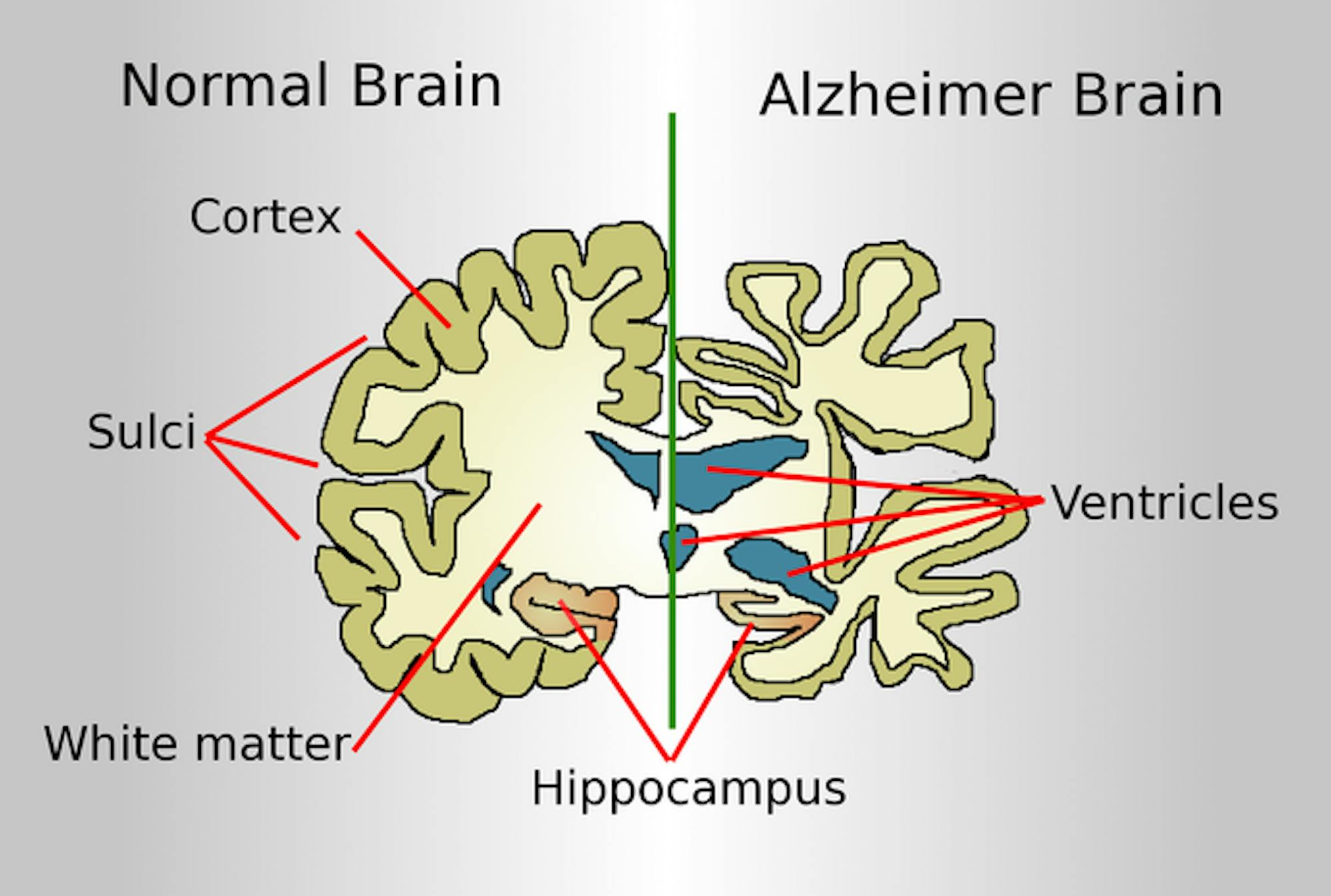The path of life is a whirlwind, filled with the good, the bad and the ugly. But the memories you make along the way are what make you who you are. But somewhere down the road, you have lost that part of you, because the very memories that built your foundation have dissipated. This is the reality for more than 6 million Americans who have lost who they are and who they were to become due to Alzheimer’s disease (AD).
Alzheimer’s disease is a degenerative brain disease that leads to nerve cell damage. Amyloid plaques, the buildup of misfolded protein fragments, form in between the nerve cells, which block cell-to-cell signaling. On average, onset occurs between the ages of 56–64, but rarer early-onset cases can affect those from the age of 30. The symptoms begin with diminishing a person’s ability to retain new information and slowly reduce their overall quality of life, causing confusion and disorientation and eventually ridding them of the ability to speak, swallow and walk.
It has been difficult to discover treatments for the disease, as its root cause still remains unknown, even while many scientists hypothesize a multitude of factors that contribute to the risk of the disease. However, Tufts researchers may bring experts one step closer. Using a 3D model of living human brain cells, they showed that the herpes simplex virus, HSV-1, induces “the growth of” Alzheimer’s-associated plaques.
On these plaque-filled model cells, the researchers tested 21 chemicals that can be dietary supplements to prevent Alzheimer’s progression, two of which had a notable impact on decreasing the plaques: green tea compounds and resveratrol. These compounds were among the few that prevented Alzheimer’s characteristics by preventing herpes infection and plaque formation, while other compounds proved less effective as they still allowed for infection.
While the study only tested these compounds on herpes-induced plaques, ideally the team will be able to find results from the green tea and resveratrol compounds that are effective despite the cause of the disease.
David Kaplan, chair of the Department of Biomedical Engineering, explained the promise that these compounds may have as inhibitors for the development of Alzheimer’s disease.
“They are an indication that these compounds may be very useful to study further and perhaps use in some type of dietary supplement to inhibit the progression of Alzheimer’s symptoms. In general terms, they would be applicable regardless of the cause of the disease, with the possible exception of familiar forms (e.g., genetic predispositions, about 5% of cases), as a mode to reduce inflammation-related progression and causes of the disease,” Kaplain wrote in an email to the Daily.
It is important to remember that laboratory results do not always equate to what will be seen in patients. For instance, bioavailability, which refers to the ability of a drug to enter the bloodstream upon ingestion, may become an issue.
Dana Cairns, a postdoctoral research fellow in the Kaplan Lab leading the study explained, “For many of these compounds and supplements, relative bioavailability or blood-brain barrier penetrance is unknown. It’s possible that some of them actually can make it to the brain and function to prevent AD. Importantly, it is also not clear what levels of these compounds would need to be maintained in order to have a prophylactic benefit in preventing AD.”
In order to test the accessibility to the bloodstream and penetrability of the blood-brain barrier, Cairns believes that it would be informative to study the compound's efficacy in animals. Should they prove inefficient, the compounds would need to be modified such that they navigate the gut and cross the blood-brain barrier while retaining their structure.
The main benefits that the findings from this study provide, Cairns outlined, are the accessibility and naturality of the compounds that proved to be effective.
“Identifying readily accessible supplements that demonstrate activity in preventing some of these AD characteristics gives people some autonomy over their health. … The anti-AD compounds we found are safe and naturally available in certain foods and/or as supplements, and adding them to your daily regimen as a preventative measure would be simple,” Cairns wrote. “For example, natural sources of resveratrol include red wine, certain fruits such as grapes, blueberries and cranberries, peanuts, pistachios, and cocoa.”
Cairns also noted that while it is empowering to have found indicative results of natural anti-AD sources, it is important to still consult healthcare providers prior to changing dietary habits.






